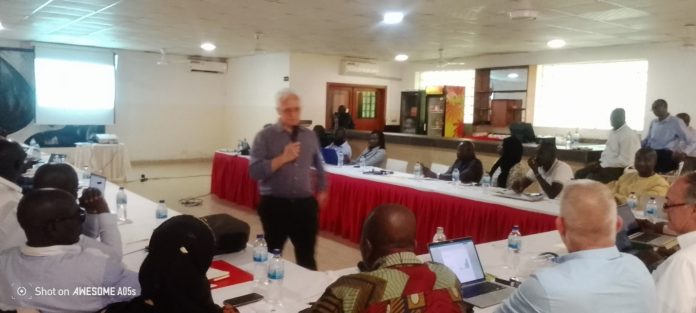By Amadou Manjang
The Gambia Tourism and Hospitality Institute (GTHI) is set to have a new curriculum that will fill the skill gaps in the tourism labour market.
The new curriculum, according to officials, will be in line with the skills currently needed in the tourism industry. The Ministry of Tourism and Culture has validated the Curriculum and Capacity Needs Assessment Report for the project on Wednesday, 14th August, 2024.
According to the Tourism Specialist Consultant, Lamin Bojang, the Curriculum and Capacity Needs Assessment Report captured the industry needs and gap analysis in the tourism sector. The reports capture hotels, restaurants, travel agents, guest houses among others.
Mr Bojang added that the development of a Curriculum for The Gambia Tourism and Hospitality Institute is to provide the skills that are currently needed in the tourism sector, because the report assesses the industry needs.
‘We identify the gaps, assess the need and try to develop a curriculum that will fill the gap in the tourism labour market,’ he said.
He further explained that the curriculum will help in training teachers and lecturers as well as develop courses on the needed skills to produce a resilience and good market force in the country because the Gambia’s tourism sector needs resilience after the COVID impact.
Curriculum and Capacity Needs Assessment Report is part of the Tourism Diversification and Resilience in the Gambia Project (TDRGP).
Deputy Permanent SECRETARY, Ministry of Tourism and Culture, Mrs Isatou Drammeh, said formation of the curriculum and capacity needs assessment and development is in line with the National Tourism Policy 2021 -2031.
She said this will improve necessary areas in GTHI’s curriculum, human capacity and training facilities, to meet the fast-changing needs of the tourism and hospitality industry.
The Assessment Need Reports reviewed the GTHI’s current operations, teaching staff capacity and suitability of training materials, equipment and curriculum; assess the skills needed by the Gambian private sector; prepare a plan for the redevelopment of GTHI as a Tourism & Hospitality Training Institution that addresses main gaps identified.
‘This exercise is necessitated by the compelling case to expand the scope and institutional infrastructure of the GTHI, in view of the fact that ensuring quality, and high standard of service delivery have become one of the key success factors for any tourism destination, and this success factor is also linked to product development and destination marketing,’ she said.
According to her, there is a need to incorporate new ideas in hospitality focusing on wellness and quality service in terms of beds and other functional and technical aspects including variety and presentation of culinary delights.
She said the tourism workforce is currently faced with a massive brain drain by the emergence of the cruise ships, which wrecks the industry of its valuable workforce.
‘It is worrisome that if this trend continues and no remedial measure is put in place to mitigate it, the industry manpower will be significantly affected and that will be a massive blow in our quest to achieve the anticipated development of the tourism sector,’ she said.
She stated that there has been a shortage of manpower in top and managerial positions in the tourism and hospitality industry and about 10% of the hospitality workforce constitute non- Gambian expatriates, mostly occupying top managerial positions in hospitality, with few Gambians in such positions.
‘This is harmful to the sustainable development of the tourism and hospitality industry,’ she said. ‘All of these factors emphasize the need to revisit the institutional infrastructure, including capacity building, educational retraining of core hospitality instructors and overhaul of the curriculum with a view to making the GTHI more market oriented and relevant to the needs of the industry.’
Momodou Singhateh, the Director General of Gambia Tourism and Hospitality Institute also highlighted the significance of developing a curriculum that is in line with the labour market. He said this will not only provide employment, but will also fill the gap in terms of skills needed in the industry.



















